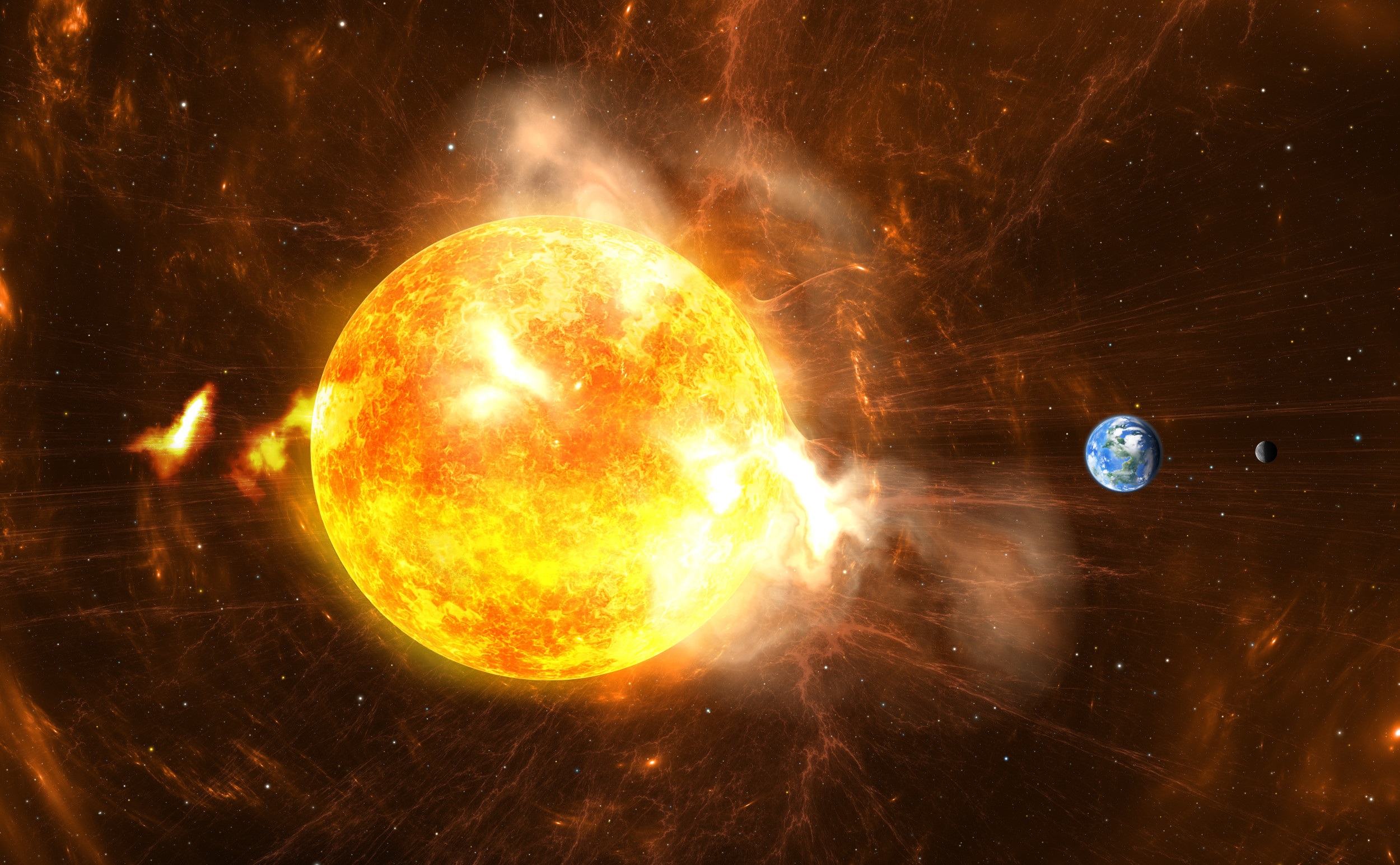The 74-year-old NATO alliance will carry its revitalized sense of purpose into next week's landmark summit in Vilnius, Lithuania, as it looks to deepen support for Ukraine in its existential fight against Russia while reinvigorating national militaries to sharpen its own deterrence of Moscow.
But any meeting of the 31-nation, consensus-driven alliance has the potential for drama. The generational challenge of a resurgent Russia is prying open long-standing fissures in the transatlantic community, touching on a range of divisive issues.
Beyond the immediate challenge from Moscow lies a more uncertain—but potentially more epochal—contest with China, which sits largely outside of NATO's historic purview.
By the time leaders gather in Vilnius on July 11 and 12, most of the summit's key decisions will have already been agreed to. Diplomats and policy makers across the bloc are now grappling with the solutions that will shape the direction of the world's most potent military alliance.
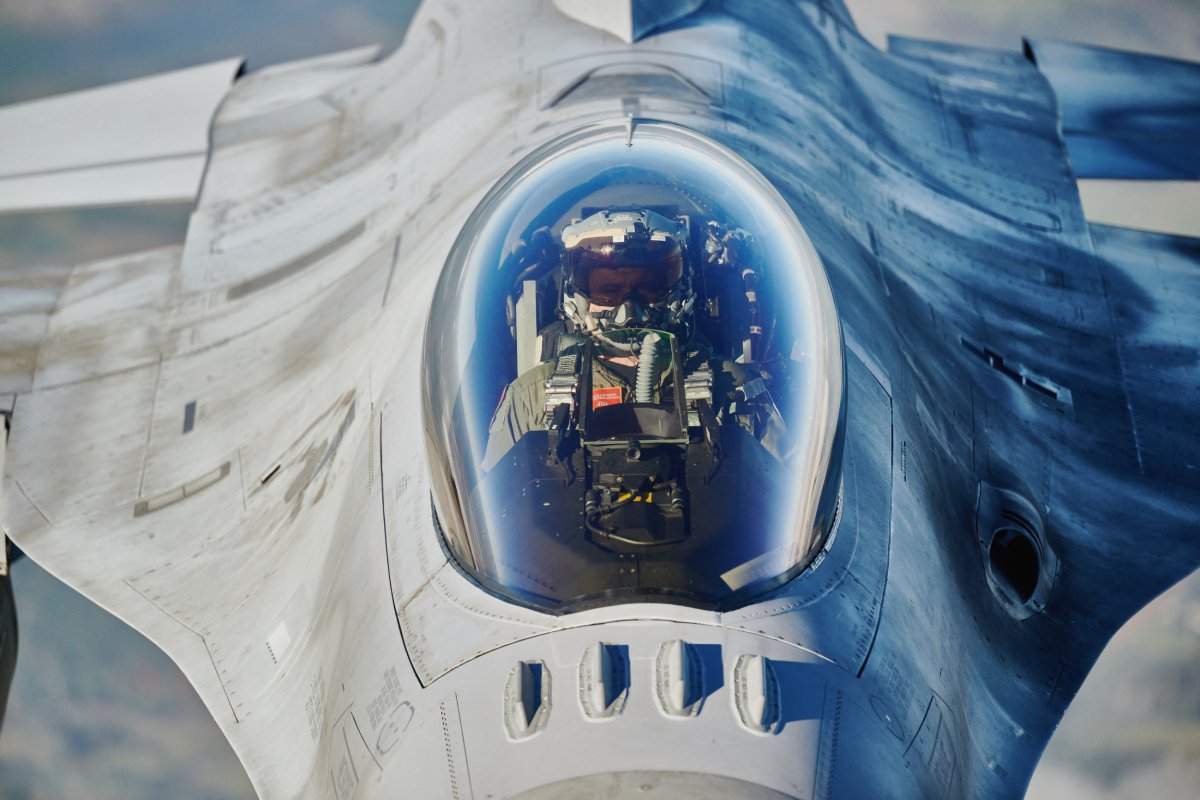
What Next for Ukraine?
NATO allies meet as Ukrainian troops press a major counteroffensive in the south and east of the country that President Volodymyr Zelensky has acknowledged is progressing slower than hoped in the 16-month-old war.
Ukraine is demanding two things at the Vilnius summit: more, heavier weapons, and a concrete NATO commitment to Kyiv's future membership that goes beyond the established, but vague, vow that the country will one day be admitted to the alliance.
Ukraine is already fielding NATO-made main battle tanks, with allies committing more to support the counteroffensive. American Abrams tanks are not yet in the theater, but they are expected to be in Ukrainian service by the end of 2023. F-16 fighters will also not arrive in time to support the counteroffensive, much to Kyiv's frustration.
The American MGM-140 Army Tactical Missile System is "still in play," U.S. President Joe Biden said last month. The long-range missiles have long been at the top of Kyiv's wish list, but U.S. fears of Russian retaliation have prevented their transfer to Ukraine. In recent months, reports indicate that an agreement might be edging closer.
Fabrice Pothier, a former director of policy planning for NATO, told Newsweek that NATO allies must not use new weapon announcements to "deflect the harder, and in a way for the Ukrainians the more important, question" as to whether Ukraine truly "belongs to the family."
Russia's war on Ukraine has only deepened Kyiv's ambitions to join both NATO and the European Union. Ukrainian leaders have accepted that membership is unlikely while the war with Russia continues, but Kyiv is urging NATO allies to provide a concrete path to full accession.
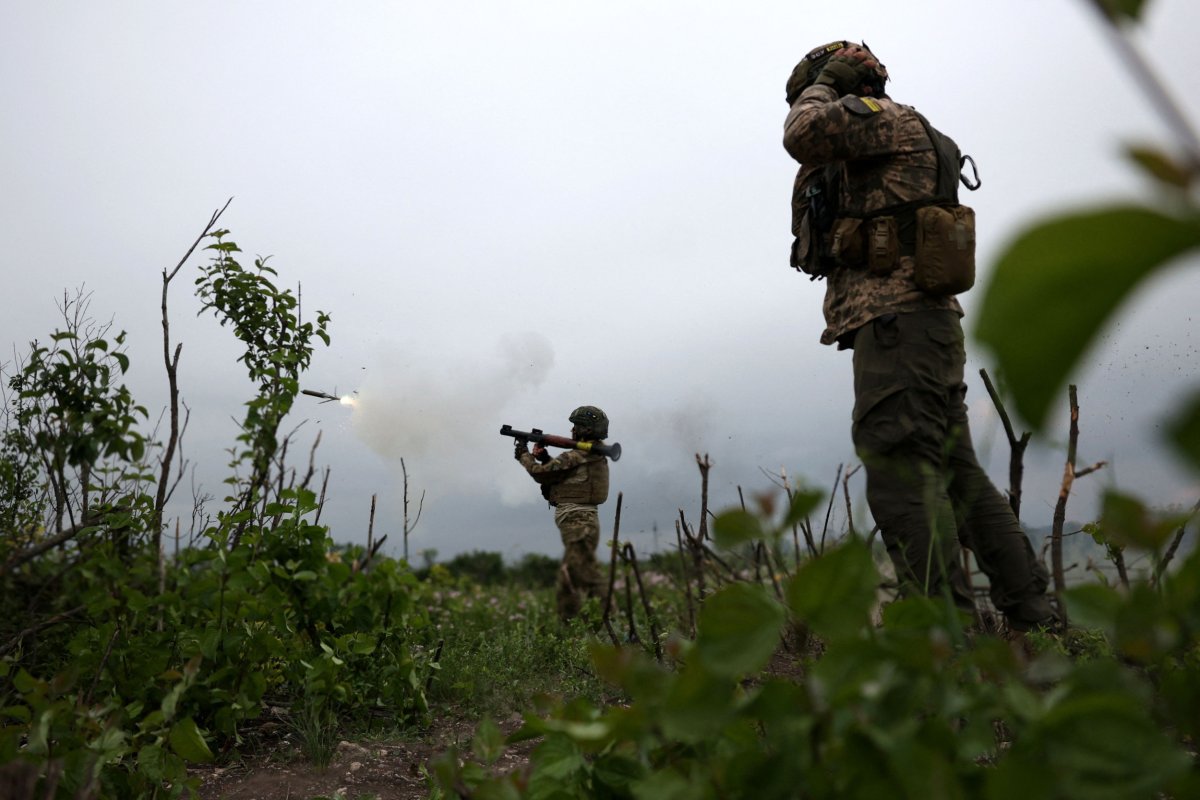
"Ideally, we would like to receive an invitation to join NATO at this summit," Oleksandr Merezhko, a member of the Ukrainian parliament and chair of the body's foreign affairs committee, told Newsweek. But Merezhko acknowledged that timeline and modality of accession will have to be subject to discussion.
"Maybe there will be the following model: the Vilnius summit produces the decision that Ukraine will join NATO, and the 2024 Washington summit produces the invitation to join NATO," Merezhko added.
Kyiv may be able to secure a series of bilateral agreements with major NATO states to bolster its military development and ensure long-term collaboration with the alliance's most powerful members. Such "stop-gap" deals may go some way to plugging Kyiv's most serious vulnerabilities without full NATO membership and deterring future Russian aggression after any hypothetical peace deal.
Pothier said the looming Ukrainian membership question might produce some "drama" in Vilnius.
"Diplomats are trying to get to full consensus before Vilnius," he said. "But if it's not the case, it will have to be taken to the heads of states. And then, things are pretty open as to the outcome."
Will Sweden Join NATO?
Turkish President Recep Tayyip Erdoğan has been playing a spoiler role in NATO's planned expansion to include Finland—which joined in April—and Sweden. His reelection in May dashed hopes of a sudden U-turn and Swedish accession before or at Vilnius.
The Hungarian parliament and Prime Minister Viktor Orban are also delaying ratification of Sweden's accession, though they are expected to fall in line if and when Turkey votes to approve Stockholm.
Erdoğan is still demanding Sweden do more to crack down on Kurdish political and militant groups, plus allow the extradition of those associated with U.S.-based preacher Fethullah Gülen blamed by Ankara for a failed 2016 coup. Swedish leaders have said such demands are contrary to core NATO values including respecting the rule of law.
The controversy has ignited public opinion in both nations, not the least after a far-right activist burned a Quran in front of the Turkish Embassy in Stockholm in January. An Iraqi man repeated the act last week, prompting protests across the Muslim world. One demonstration in Baghdad escalated into the storming of the Swedish Embassy there.
White House officials and increasingly frustrated U.S. lawmakers have sought to pressure Ankara into concessions by linking the issue to a proposed $20 billion deal for F-16 fighter jets, but Erdoğan said Stockholm should not expect approval any time soon.
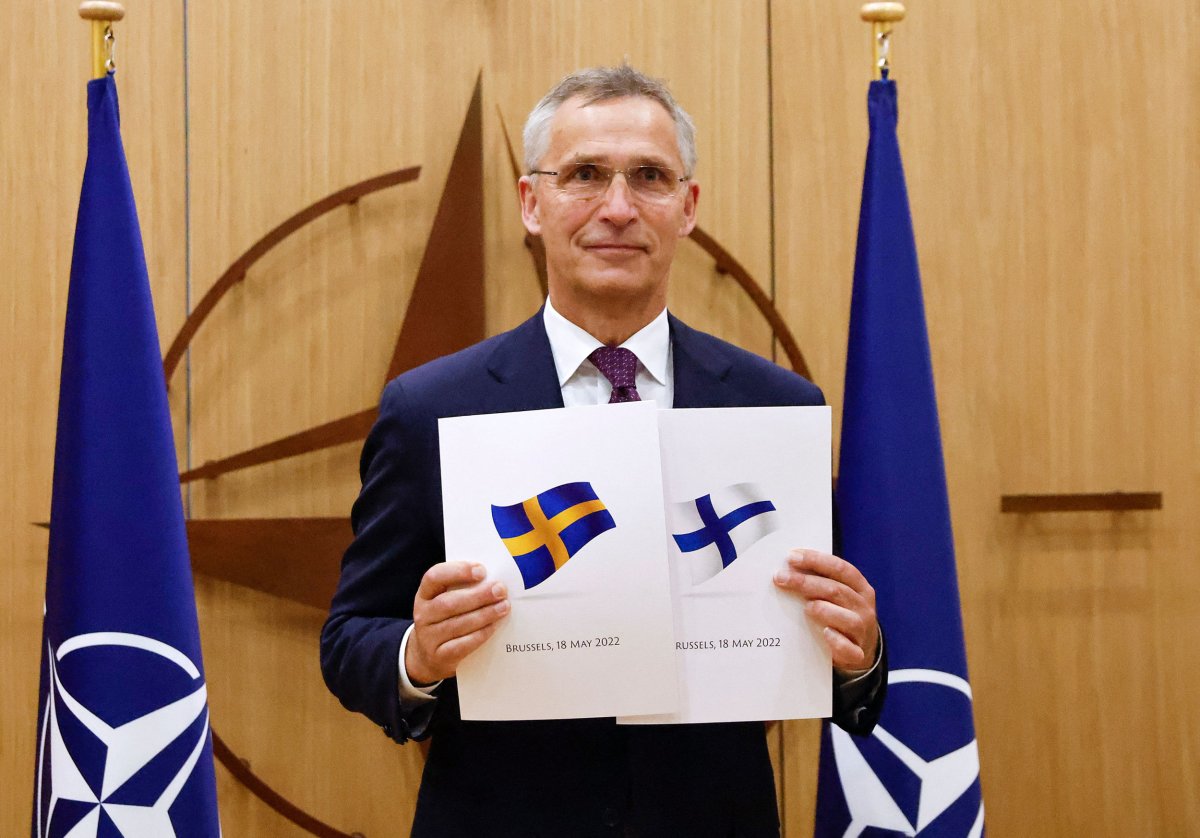
Fatih Ceylan, Turkey's retired ambassador to NATO, told Newsweek it is now "rather difficult, if not impossible, to see an abrupt breakthrough before the summit."
Still, Ceylan said the event might provide the basis for future progress.
"There is maybe a slim chance to agree on common ground to pursue at the summit itself," Ceylan said. "I'm sure there will be a lot of bilateral consultations."
Turkish and Swedish diplomats will meet on Thursday as part of the accession consultation process established at last year's Madrid summit. That discussion may open a narrow window of opportunity, Ceylan said.
"I have cautious optimism," Ceylan said. "I think everyone will have things in their pockets and in their minds when they go to Vilnius....Maybe there will be a solution to be found there."
Tensions Over Military Spending
Western nations have responded to Ukraine's request for military aid, even if at times much slower than Kyiv would have liked.
But the war has also exposed the limited ability of non-U.S. NATO nations to wage a large-scale conflict. Allies are scrambling to refill emptied arsenals, but many are starting from positions of low spending that have long irked American policymakers, perhaps most notably former President Donald Trump.
NATO nations agreed in 2014 to work toward spending 2 percent of GDP on military expenditure, and 20 percent of that on new technologies. But when allied leaders meet in Vilnius, only eight of 31 states will be spending at or above the 2 percent target.
Some—including Estonian Prime Minister Kaja Kallas—are pushing allies to adopt a new spending target of 2.5 percent at Vilnius. Long-term conflict with Russia, Kallas told Newsweek in May, is the "new reality."
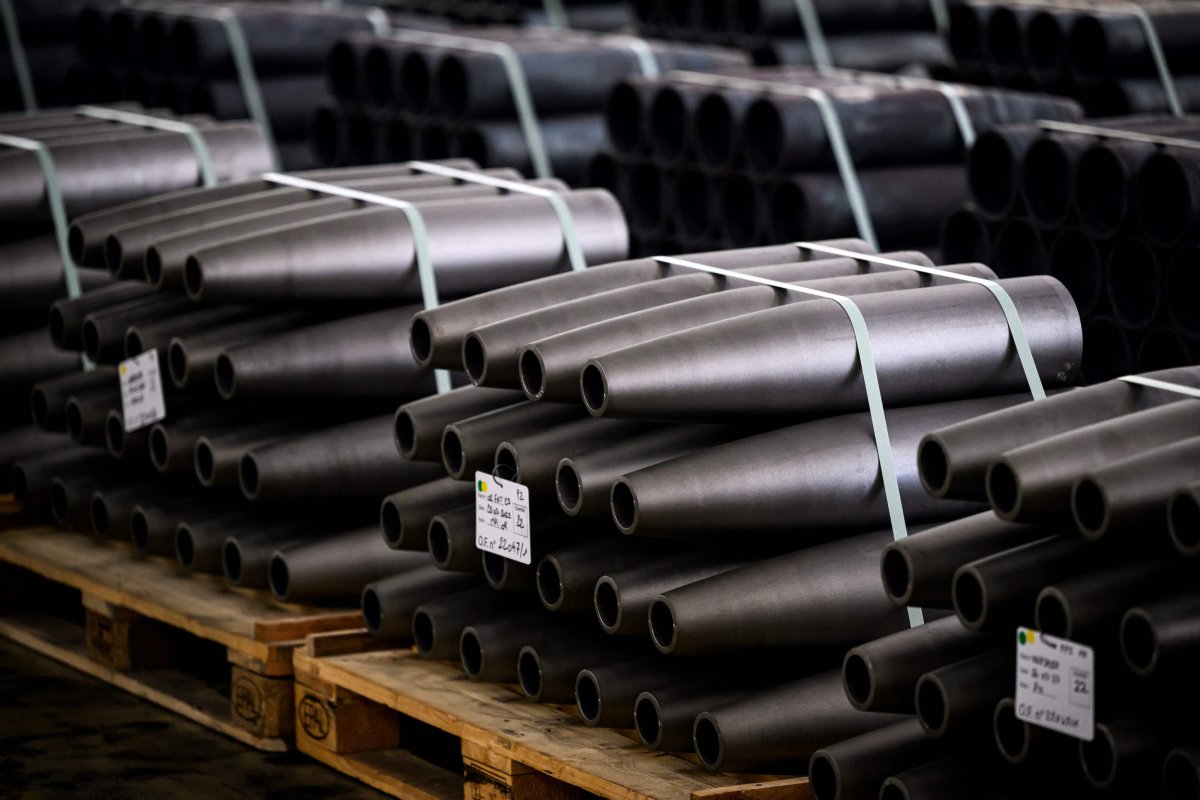
"If you go back to the Cold War or before that, it was not abnormal for a country to spend anything between 5 and 10 percent of its GDP on defense," James Rogers, co-founder of the British Council on Geostrategy think tank, told Newsweek. "There is a discussion to be had as to whether spending at the moment is enough, given the new circumstances that are emerging all around us."
The issue may become more divisive amid Russia's aggression and the 2024 U.S. presidential election, with Trump and his supporters showing no signs of softening their past Ukraine- and NATO-skeptic positions.
"It's politically completely self-defeating," Pothier said of the collective failure to hit the target.
Allies, he said, are set to redefine 2 percent of GDP as "not the ceiling, but the floor" for military spending.
"But the problem is how credible are you in saying that when you have less than a third of your membership meeting that goal right now?" he said.
Looming Threat in Eastern Europe
Moscow's forces have proved unable to conduct sophisticated combined arms warfare despite decades of supposed reform and modernization. But they are still willing to devastate swaths of enemy territory while absorbing massive casualties.
NATO discarded its so-called "tripwire" strategy last summer in Madrid, instead agreeing to a more robust multinational deployment along Russian borders in which Western forces would theoretically contest "every inch" of allied territory.
But allies have been slow to scale up their eight existing Enhanced Forward Presence (EFP) battlegroups, and to transition from rotational to permanent forces. The allied push to expand its high-readiness response force from 40,000 to more than 300,000 troops appears to be taking longer than planned, and NATO has failed to new plans for how to respond to any future Russian attack.
Regional NATO leaders are also expressing concern over the apparent relocation of Russia's Wagner Group mercenaries to Belarus after financier Yevgeny Prigozhin's short-lived insurrection last month. Newsweek has reached out to the Belarusian Foreign Ministry by email to request comment.
Margarita Šešelgytė, director of the Institute of International Relations and Political Science at Vilnius University, told Newsweek that Lithuania and its neighbors will be pushing for more NATO muscle in the east.
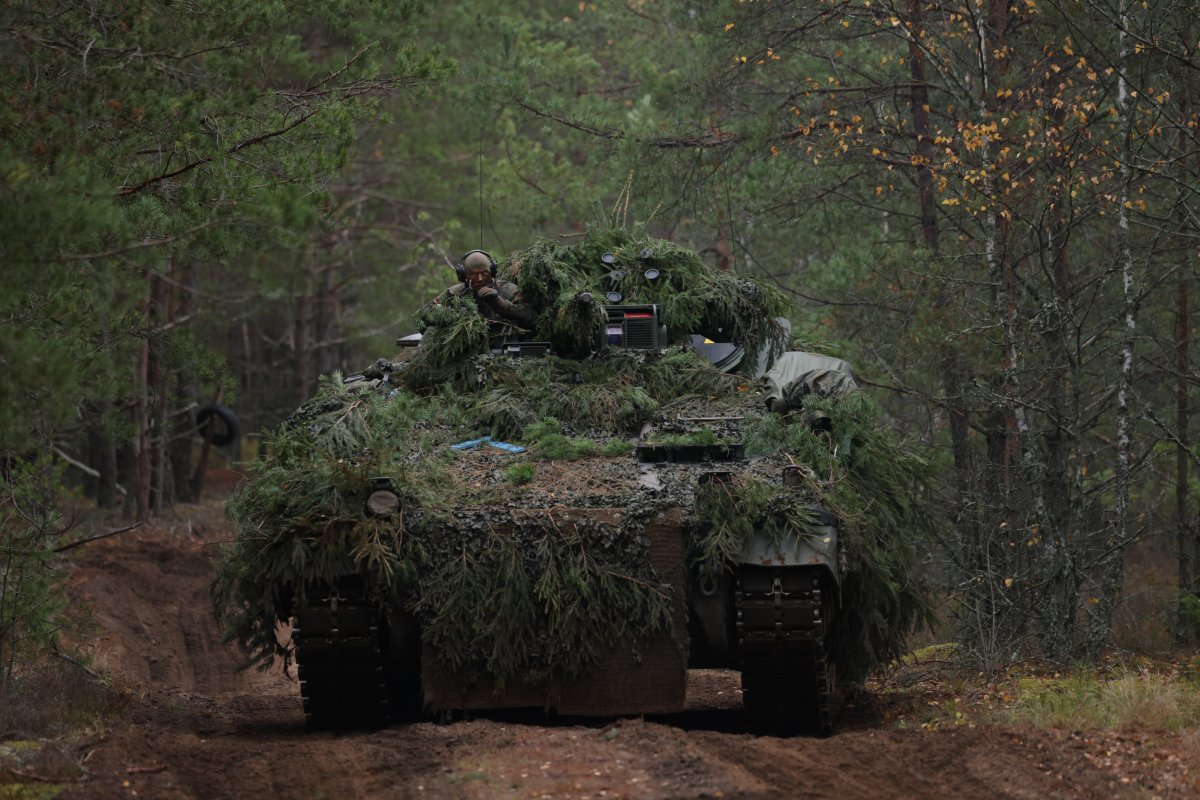
"The military balance in the region is unequal, and it doesn't favor NATO," she said. "For us, it's particularly important that the NATO countries would realize that this balance is still uneven."
Baltic leaders have consistently warned that any conflict with Russia would devastate their nations, even if Moscow was defeated. The Ukrainian defense-in-depth scenario "is not viable" for small regional nations like Lithuania, Šešelgytė said.
"We would be seeing Buchas in Latvia, Lithuania and Estonia in every town," she added, referring to the Russian military's massacre of civilians in Kyiv suburbs in spring 2022.
Western capitals will be trying to strike a balance between deterrence and resources.
"They should get the minimal necessary required to give them the level of reassurance that they and their people need, and what is sufficient to deter Russia from mounting an attack," Rogers said. "If you've given them any more than that, you're basically wasting resources.
"I think actually the Russians are deterred. I think that they will not initiate conflict with a NATO state for the simple reason that they knew that they would be defeated. Or it would end in nuclear ruin for everybody."
Facing Down China
NATO first recognized the "opportunities and challenges" of China's rise in its declaration after the 2019 summit in London, the last such event before the COVID-19 pandemic brought the world to a standstill and deepened long-simmering concerns about the West's ability to compete with the emerging superpower.
The NATO Strategic Concept published at the alliance's Madrid summit last year was more pointed, noting that Beijing's "coercive policies" represent a direct challenge to transatlantic "interests, security and values."
Concerns over Chinese conduct—including its deepening alignment with Moscow—will take a back seat to Ukraine at next week's meeting. But past summits suggest NATO knows it cannot ignore thorny China issues in the long run.
"I think many European countries would like China to be a secondary issue, but I think the Americans—and to some extent, the British—will be trying to push this onto the agenda in the same way they did at the Madrid summit," Rogers said. "The Chinese dimension is not going away."
Even those not prioritizing the topic know it matters, Rogers said.
"They are aware of the growing influence of China," he said, "and they also understand that it's not altogether friendly."
Even the U.S. may go softer on the China issue in Vilnius given U.S. Secretary of State Antony Blinken's recent visit Beijing, and as the White House tries to avoid further escalation in a bilateral relationship that has deteriorated in recent years.
"I think there's going to be an effort to keep things the way they have been set in Madrid," Pothier said.
"I don't see what else they can say or do on China," he added, though he noted that "important" meetings will be held between NATO and representatives from Japan, South Korea, New Zealand and Australia.
Uncommon Knowledge
Newsweek is committed to challenging conventional wisdom and finding connections in the search for common ground.
Newsweek is committed to challenging conventional wisdom and finding connections in the search for common ground.
About the writer
David Brennan is Newsweek's Diplomatic Correspondent covering world politics and conflicts from London with a focus on NATO, the European ... Read more
To read how Newsweek uses AI as a newsroom tool, Click here.






